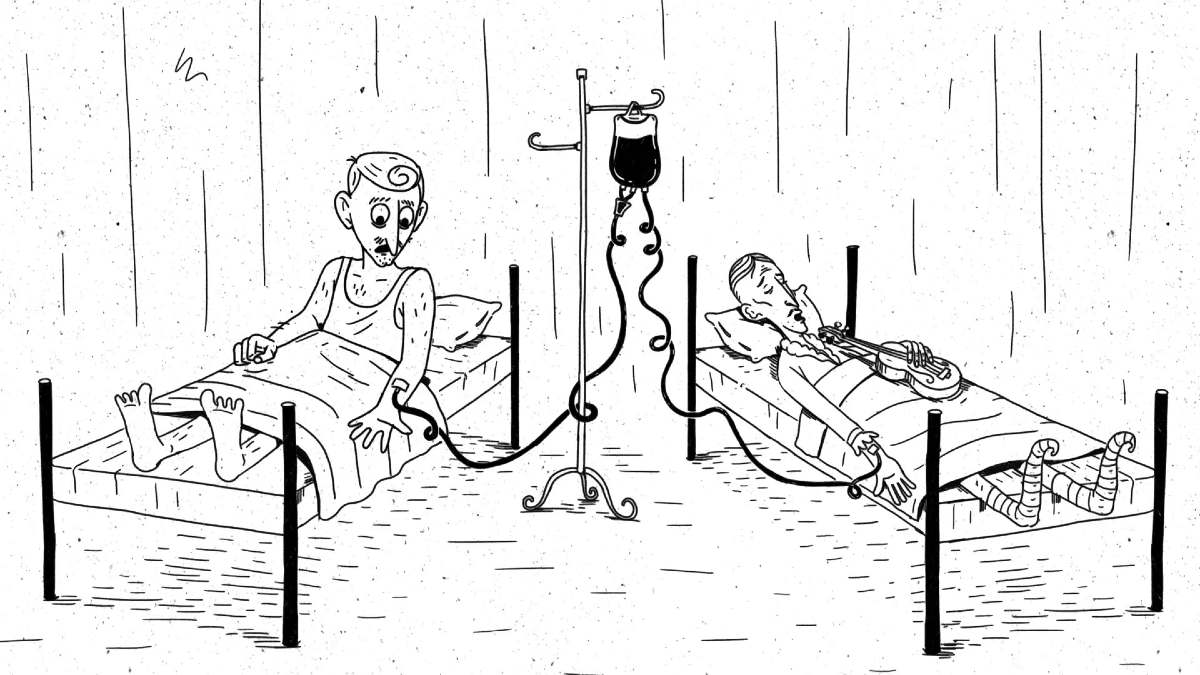
Another go at refuting the “famous violinist” argument for abortion
An Australian philosopher discusses the ‘self-aborting foetus’
SRF Kultur / screenshot
One of the most famous bioethics papers of all time was published 50 years ago, in 1971, by Judith Jarvis Thompson, an American philosopher. It was a defence of a woman’s right to abort a foetus, even if the foetus is acknowledged to be a person from the moment of conception.
In her paper, Thompson imagines that a woman wakes up to find that her circulatory system has, without her consent, been connected to that of a famous violinist with kidney failure whose life she must sustain for nine months. To remain connected would be a kindness, she argued, but it could not reasonably be construed as an obligation.
It is an argument about which philosophers are still arguing and which many people have found persuasive.
Australian philosopher Matthew John Minehan is the latest to take up the challenge. He proposes a different scenario – even weirder than Thompson’s – to dispute her claim that the woman has an indisputable right to detach herself from the parasitic violinist:
I develop my own novel thought-experiment: The self-aborting fetus. My motive was to come up with a situation where person A depends on person B in much the same way that a regular fetus depends on its mother and the violinist depends on his kidney surrogate, but where the mother is now the dependent party rather than the life-sustainer. By developing a scenario where the mother is the person in need, I hope to identify any biases we might have in favour of the mother.
In short, I ask my readers to imagine a world where some fetuses develop at a faster than usual pace and can self-abort (i.e. give birth to themselves) after three months of pregnancy. The downside of a self-abortion is that the mother will die from a nutritional deficiency, however she can take medicine to override the self-abortion. If she overrides the self-abortion, both she and the fetus will live, however the fetus will experience six months of discomfort until it is born at a normal time.
It seems to me that most of us would think it was reasonable for the mother to suppress a self-abortion in order to save her own life. After all, this will ensure both of them keep their lives, and it will only inconvenience the fetus for a matter of months. Yet doing so would violate Thomson’s principle that no one has a right to the use of another person’s body against that person’s wishes. In short, I suggest that if it is justifiable to override a self-abortion and compel a fetus to remain in the womb, then it should likewise be justifiable to compel a kidney surrogate to remain connected to a violinist.
As Minehan reflects in a blog post, thought experiments are valuable because they help readers to clarify the issues.
Michael Cook is editor of BioEdge
Creative commons
https://www.bioedge.org/images/2008images/Thought_experiment.jpeg
judith jarvis thompson
- How long can you put off seeing the doctor because of lockdowns? - December 3, 2021
- House of Lords debates assisted suicide—again - October 28, 2021
- Spanish government tries to restrict conscientious objection - October 28, 2021
